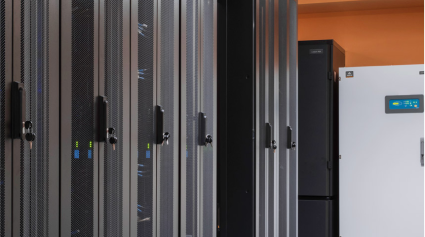The significant upgrades in computing technology and the continued proliferation of edge computing over the past 5-10 years has affected every industry. But the retail industry has, without question, changed the most dramatically.
The customer experience is now more vital than ever, with brands increasing the number of touchpoints to their customers. In omnichannel retailing, customer behaviors are driving the goal to merge brick and mortar and online experiences seamlessly. How well a brand can meet and even anticipate those experiential needs relies on near real-time access to customer data, which is possible with computing infrastructure located at the edge of networks — physically closer to customers. Having this architecture minimizes the delay in the data transfer and will be key for determining a brand’s long-term success at consistently exceeding customers’ expectations.
Let’s look at one example of an ideal retail customer experience:
- Sarah opens a text from her favorite store with a promo code: “ShopFall2019. Save on all of your fall favorites!”
- She opens her app and starts to browse.
- She selects a blouse and a skirt that get added to her cart via the app.
- Her shopping points for being a loyal shopper are automatically added, as is the promo code.
- The app securely stores her address and credit card, but she is wondering about the fit of the blouse.
- Through the app, she sees her local store has the blouse and skirt.
- She reserves/holds the items via the app.
- At lunch, she drives to her local store where the blouse and skirt are already in a dressing room waiting for her.
- She tries on the blouse and decides she needs a medium instead of a small. The store location she is at does not have the color she wants, but a store across town does. The store clerk asks to send it to her home and tells her she can have it there this afternoon.
- While there, she sees pants she likes as well as a necklace.
- She scans the tags with her phone, and these are added to her shopping cart on her phone.
- Gathering her purchases, she checks out via her phone (with her points and promo code still applied) and walks out of the store with her purchases.
Sounds pretty great, doesn’t it? Who wouldn’t enjoy such an experience? As a brick and mortar retailer who wants to keep your doors open by competing with online-only shopping (i.e., that huge Amazon-shaped elephant in the room), it’s important to provide a seamless online/offline experience based on connectivity, not just to the Internet but to your users’ data. You’ll need to be able to have one single record which combines offline and online behavior.
Consistent & Rewarding
As a retailer, you have watched your industry transform with new business strategies, processes, and technologies to support a more consistent and rewarding customer experience across channels. This transformation requires breaking down technology silos to create a more seamless experience wherever customers touch your brands, transforming distribution centers as the lynchpins in customer-driven strategies, improving time to market for new in-store technologies, and more.
Doing all this means taking full advantage of edge computing to enhance customers’ in-store digital experience.
Thanks to edge computing, you can ensure customers are connected and updated with the most up-to-date and relevant information while in your retail environment. Edge computing provides solid data processing and storage infrastructure that reduces bandwidth and latency to keep hundreds of devices online — not just one store but an entire retail network — for a consistent experience.
Choose Wisely
Of course, not every edge computing partner is created equal. You should seek out an expert in digital continuity solutions who is committed to collaboration that delivers customized strategies for your unique profile and future strategic needs. Your edge solution should be designed to positively influence the customer experience while also controlling costs and enabling the creation of a complete data profile for each of your customers.
These solutions could include micro-data centers such as modular, pre-integrated server, storage, and network infrastructure, which enables ease of repeated procurement and deployment for all of your distributed sites (even across the globe). Most solution providers also offer remote monitoring, as well as service and maintenance contracts across all sites that will optimize the lifecycle of your assets.
With the right partner, you will generate savings in capital and operational expenses, minimize the complexity of managing distributed IT, and increase the density of IT asset deployment for more efficient use of limited space.
Although critical infrastructure providers are limitless, choose wisely and ensure your systems are backed by a reliable, stable vendor who can service your entire system locally and globally, ensure continuous uptime of your critical edge operations, and maximize your resources.



